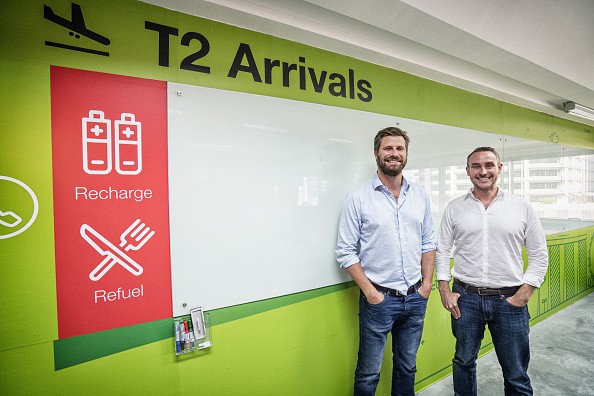Southeast Asia's largest e-commerce site Lazada Group SA, a company bought by Alibaba for $1 billion this year, is enhancing its logistics control over Southeast Asia in anticipation of Amazon's entry in the region next year.
According to a report by Bloomberg, Lazada has rolled out several initiatives ahead of the expected clash between the two giants. The company sought out partners in China and Korea to expand its delivery network in the region and other areas.
It is also looking for acquisitions and investments to strengthen its supply chain.
Next year, the company is also likely to engage into online groceries with the acquisition of RedMart, the report said.
The e-commerce site is reportedly doing all these efforts in the region, which is seen as the next battleground for the Alibaba and Amazon.
With the growing adoption of e-commerce in the region, Southeast Asia has become the fastest-growing Internet arena in the world although it lacks the transport and payments infrastructure, the report said.
When asked to comment about Amazon's entry, Lazada CEO Maximilian Bittner said: "It's a jungle out here. We are looking forward to seeing how they will differentiate themselves."
Alibaba's acquisition of Lazada from Rocket Internet is regarded as crucial to the company's plan to expand overseas and achieve its goal to become a global business.
On the other hand, Amazon has made significant moves in India.
Although Amazon has not announced its plans in Southeast Asia, the industry is expecting that it expand to the region next year.
In November, Techcrunch said that the company is likely to bring Prime delivery service and Amazon Fresh to Singapore in the first quarter, with the city state serving as a springboard for expansion in the region.
"Both of them will want to dominate Southeast Asia," Thompson Teo, an associate professor at NUS Business School was quoted as saying. "Alibaba has acquired companies to shorten the learning curve and grow faster. It's going to give Amazon a good fight."
The key to Lazada's effort is to have a system that will enable it to deliver goods from merchants in other countries into Southeast Asia.
Currently, the region is dominated by operators in some areas such as MatahariMall and Tokopedia in Indonesia and Garena, a startup.
The company operates in six countries, namely, Indonesia, the Philippines, Thailand, Singapore, Malaysia, and Vietnam. It manages 12 warehouses and 92 distribution centers. Among its 100 logistics partners include Kerry Logistics Network Ltd. and DHL in Thailand and JNE Express in Indonesia. Recently, it partnered with China's state postal service and CJ Korea Express Corp.
Bittner said that the volume of Lazada in Indonesia grew 2.5 times in September, compared to figures last year.
"We see ourselves as a logistics control tower in Southeast Asia," Bittner said. "We are looking at building a better, more sophisticated logistics capability. The world is shifting toward borderless e-commerce system and that's very much the vision of Alibaba and us."
Lazada has now gained presence in Singapore with the acquisition of RedMart. In the second half of 2017, the company plans to start selling groceries online in Malaysia, Indonesia or Thailand, according to Bittner.
RedMart co-founder and CEO, Roger Egan said that they have more than 150 trucks that can carry an average of 22 food items.
He said that they will also try to reduce delivery times to four to six hours (from mostly next-day) by the end of the first half of 2017. In the second half of the year, they will have an express service, to ship groceries within an hour or two after ordering them online.
"Grocery is seen as notoriously difficult one to do online, but it's the largest market representing 60 percent of overall Southeast Asian retail," Egan said.
"Customers are much more engaged. They visit twice a week so the frequency allows you to develop a deep relationship with customers."



























